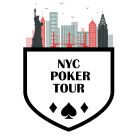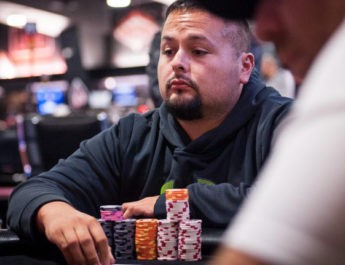I understand that many people who read my articles are not professional poker players. Perhaps you use poker as an escape from the rigors of your everyday life, or maybe you simply enjoy playing the game. While there are many reasons to play poker, most play with the intention of having the best possible chance to succeed. If you fall into that category, in addition to learning to play well by spending time studying away from the table (at places like PokerCoaching.com), I suggest you work hard to clear your mind before you play so you can give poker the focus it demands.
While some players may think there is no value to be gained from paying attention to their opponents’ tendencies, that is far from the truth, assuming your opponents are not perfect game theory optimal robots. If you adjust your strategies even slightly to take advantage of your opponents’ mistakes, over the long run, you will win significantly more money than someone who fails to adjust.
I have found that taking care of all my routine work before a poker series helps ensure my business does not plague my thoughts while I am playing. While various issues will inevitably pop up, at least I am not worried about an impending deadline. As a routine example of this, before the WSOP, I pre-make enough Weekly Poker Hand podcasts, PokerCoaching.com quizzes, written blog posts, and various other content to last throughout the entire series. Having these tasks off my to-do list gives me more free time to study poker and ensures I am not worried about having to complete one of these tasks at night after a long day of play or before a tournament.
Turning off or otherwise silencing my phone during play is another thing that helps me stay focused. I strive to put my phone in my backpack while I am playing and only address it during breaks. Even then, I still find myself mildly distracted by it. In the ideal world, I would leave my phone at home or in my car, making it easier to give my complete and total focus to poker.
While I have no personal experience with being addicted to various substances, if you are, and you find yourself craving them during play, that is likely a sign that you should take a break from them (perhaps permanently). Anything that steals your attention mid-hand is a detriment to your success.
Speaking of detriments at the poker table, I would be remiss if I did not address gambling at other games while playing poker. Many players play poker all day and then bet whatever they win on a few hands of Blackjack, Craps, Roulette, or Baccarat, hoping to spin their small wins into a substantial sum. While you will run it up every once in a while, betting large amounts of money on games where you do not have an edge is a recipe for failure. The interesting thing about players with this tendency is that even if they turn their $500 profit into $10,000, they seem to constantly want more. They then will try to run up the $10,000 into essentially infinite, which never happens. I strongly suggest you stay away from gambling games.
One gambling game that has caused me a decent amount of trouble in the past was sports betting. Betting on sports is especially problematic to poker players because you can watch the games while playing. Clearly if you are watching a sporting event while you are also trying to play poker, one of the two will fall by the wayside. In my case, I would bet one poker buy-in on a sporting event while playing with one poker buy-in at the table. I justified this by thinking that even if I was a losing sport bettor, I would only lose the rake. While that may have been true, I also stopped focusing on poker, leading to a much lower win rate, quickly transforming me from a large winner to a small one. The end result was me winning a little at poker, covering the sports losses, resulting in me breaking even. If you are trying to be a professional, clearly the goal is not to be break even.
When you decide to play poker, I suggest you do everything in your power to ensure poker is your main priority while you are at the table. If poker is not your main priority, either accept that you will have smaller returns than you otherwise would, or if winning matters to you, it may be best to not play at all. ♠
Source: cardplayer.com





